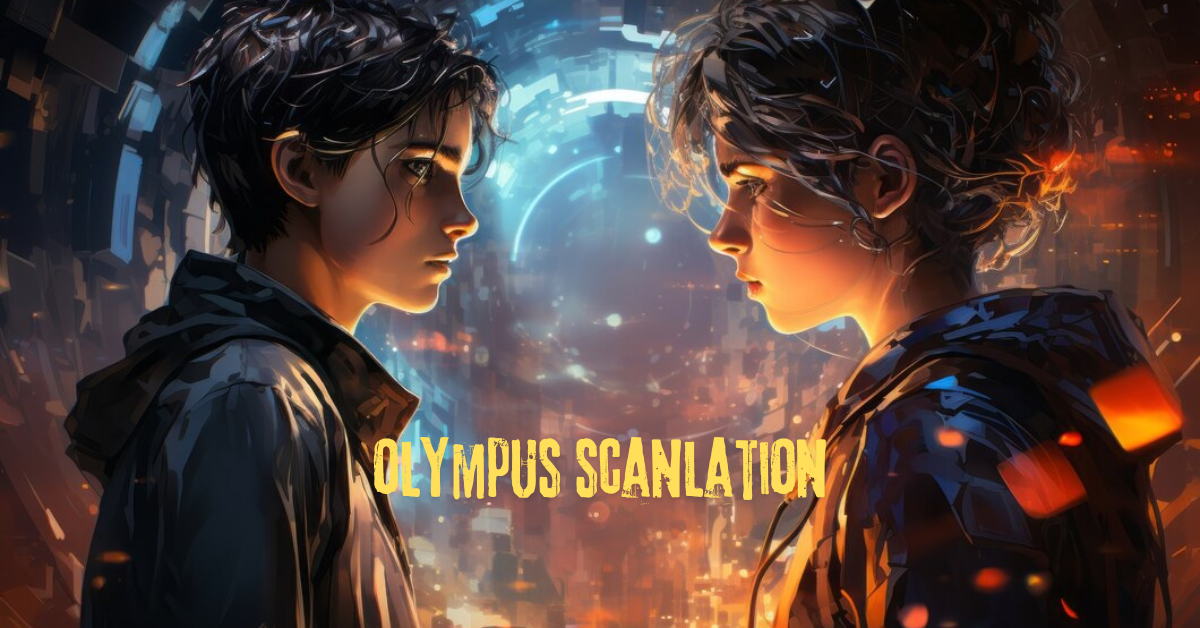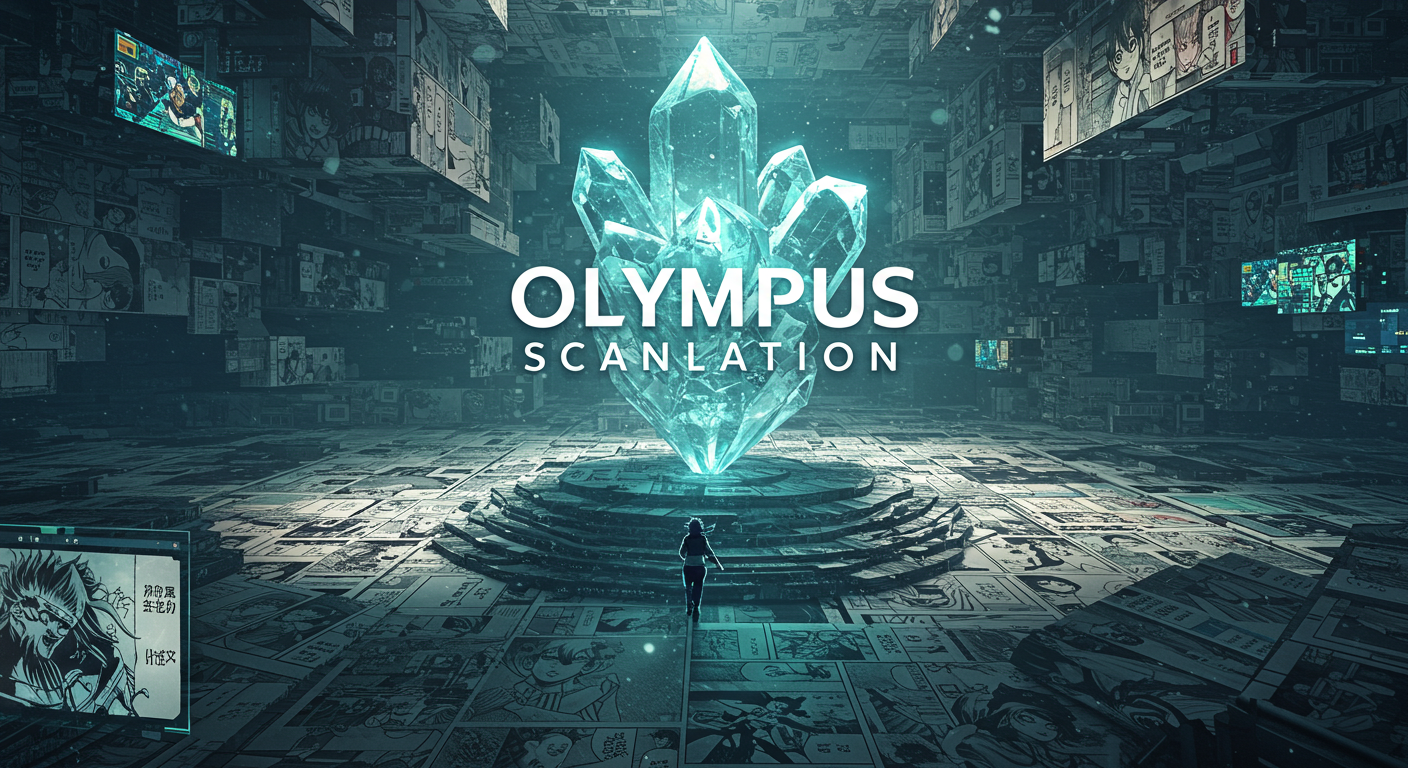The purpose of this article was to give a detailed description of Olympus Scanlation, its history and intent, its operations, difficulties and contributions to the manga culture. Developed with emphasis on technical and cultural perspectives of scanlation, it is an in-depth guide to those people who are interested in how active fan culture contributes to the evolution of media environments on many levels and in different parts of the world.
Introduction
In the continuously growing world of digital entertainment, manga has gone beyond its native cultural borders bringing it to the truly global scale. As the popularity of the Japanese manga increases, it is natural that the ways through which international readers can read such stories has become plural. Scanlation is one of such mechanisms, which are usually unlicensed but very important on initial phases of manga fandom on a global scale. Among other organizations that have sprouted in this arena, Olympus Scanlation has created a niche in established and esteemed organization.
Scanlation Scanlation is a derivative of scan and translation and is used to refer to the process of scanning the manga and translating it into a different language (usually English) and offering it in the form of a digital copy and free of charge. Olympus Scanlation is not the only scanlation group that has been fan-led, motivated by a so-called banner of enthusiasm and devotion to taking manga to the world, as well as the uncensored manga or manga outside the scope of what is widely distributed in the world.
The current article aims at investigating the phenomenon of Olympus Scanlation in detail, including its developmental scope as well as its impacts on the manga community on the global scale. We are going to look at its activities, the impact of its donations and the obstacles it has encountered. We will also see what the ethical aspects of scanlation are in general and what Olympus Scanlation does in respect to those aspects. Through this elaborate exposition, one will understand thoroughly as to what Olympus Scanlation signifies, why it is important and what are the possible consequences of these entities in years to come where digital and legal environments are changing fast.
Olympus Scanlation Meaning
Much like other scanlation groups of a similar nature, Olympus Scanlation was formed due to an unaddressed need that was slow to be fulfilled by official publishing houses niche manga in different languages, most commonly, the English-language one. It would seem that the driving force behind the group is not to make a profit, but fandom and its members tend to be volunteers who operate more like a group of enthousiasts than a production or profit-making organization.
Although the precise date of its inception may be subject to a reassessment, apparently due to the shifting membership and active phases of the group, Olympus Scanlation came to be notable in the consistency of its output and its consideration of quality and cultural accuracy in its scans. The group has a wide portfolio of titles across the different genres, including shoujo works, josei as well as lesser known seinen titles. Most of the manga that they worked on was already neglected by the official licensors and the fans were left with not much more than they could do to engage in it.
Olympus Scanlation has been much lauded in the blogosphere because of their ability in writing text with words that often take notice of nuances, leaving Japanese honorifics and cultural phraseology where they retain, and in a bid to ensure the cultural differences are not broken they always include the translator notes to fill up the blanks. Even the arrangement of the text, fonts and layout of their releases give off an appearance that competes even with some professional publishing houses.
The Scanlation in the Culture of Manga
Scanlation has always had a double role within the manga fandom. On the one hand, it makes available to the masses that which would otherwise be region locked, untranslated, or completely unknown outside Japan. It, on the other hand, lies in a gray area of the law that is a source of concern to both copyright holders, artists, and publishers.
Olympus Scanlation has this larger picture in which it has registered its presence but what makes it different is that it still follows some community ethics. Most scanlation groups (Olympus included) abandon a series as soon as it gets officially licensed into English. It is not binding legally, but such self-regulation can be regarded as quite a polite treatment of those originators who created original works, and their publishers. It is also a reference to the bigger picture of having manga reach across the world without jeopardising the industry which it is produced in.
Scanlation has also led to the increase in selling global manga in history. Introducing foreign markets to new titles, these groups tend to cause some interest which results in formal translations and sale of merchandises. In several instances, Olympus Scanlation has been the bridge between the Japanese artists and the rest of the world that would never have known they exist.
Niche of Olympus Scanlation and Their Practice
Olympus Scanlation is also inclined towards the realm of the uncommon and unloved as opposed to centering on popular mainstream works that some other groups work on. This curatorial element of their functioning has received a positive response among the readers who seek new content instead of common big-name series. Such a group seems to choose the projects on artistic merit, individual story or community demand- not on popularity.
They are normally systematic. Every chapter experiences a number of processes: raw scanning, cleaning, translating, proofreading, typesetting and quality check. This pipeline means, that the time between the release of a chapter and it being up to a level that Olympus Scanlation apparently is proud of, is relatively short. This kind of specification says not only that the person writing it loves what he/she is writing but also that he/she respects the people who will ingest it.
Members have occasionally underlined in interviews and posts in the community that quality is their aim and not speed. As opposed to such scanlation groups as speed scanlation, which are in a rush to translate and release chapters as quickly as they are out in Japan, Olympus Scanlation is a scanlation group that aims not only to offer a faithful and as aesthetically polished translation as possible, but also to double-check every aspect of the work.
The quality and consistency in the Olympus Scanlation.
Olympus Scanlation has a reputation of quality. Their clean scan and professional-looking typesetting, and smooth integration of sound effects and translated onomatopoeia are commonly noted by readers as a strength to be admired in them. The group does not turn the art into over-edited versions but lets the original visuals shine to achieve so much, also making the text readable.
The other strength is consistency. Olympus Scanlation tends to undertake full series, unlike other groups that fade away after a couple of chapters, which later may be picked up by Olympus Scanlation as it has done in several cases. The loyalty of its readership has been as a result of this reliability and they appreciate their hard work and professionalism.
In addition, they tend to publish their books with the notes on translators and cultural comments. These additions demonstrate not only a profound level of connection to the source material but also the urge to inform the reader without making the experience of reading a watered-down experience.
C.A.O Scanlation Community around Olympus
Olympus Scanlation is not only a group of people to produce, but also a community center. The team has transparent communications with the readers in such platforms as Discord, Reddit, and on specific forums. Fans are even allowed to suggest, report typo, or even volunteer when their skills are useful in future releases.
This interaction will help establish trust thereby making a shared ownership. The community understands that the face behind Olympus is not faceless and is a group of fans who are toiling hard to share something they love. In its turn it promotes respecting attitude, material contributions in the form of voluntary donations, and even mutual cooperation with other communities.
Future projects are partly determined through community polls and reader feedback as well. This democratic process keeps the group democratic with what audience would like so that it is a dynamic environment that promotes mutual growth.
Setbacks of Scanlation Teams
Scanlation communities such as Olympus encounter a few challenges despite their noble motives. The first order of problems are the legal problems. We have also seen that in the past, many creators and publishers in Japan have ignored scanlation but with the growing globalization the use of legal notice, takedown requests, and even site shuttings rise.
And then comes that issue of burnout. These projects are not paid therefore a considerable number of team members work during their free time. The various changes in life that lead to delays or abandonments of the projects are the result of time crunch and changing interests. Olympus Scanlation on the other hand has been able to maintain a fairly constant level of output which can probably be attributed to the fact that it is well organized and has a solid working culture.
The technical issues are still present, too, choosing clean scans, raw material, high-quality access, and complicated layouts or vertical text. The fact that Olympus is a company that endeavors on quality implies that they will mostly go an extra mile to conquer such barriers.
Landscape of the Ethical and the Legal
The issue of the legality and the morality of scanlation is not emerging. In most jurisdictions, copyright laws are black and white- an illegal translation and distribution of the translated work is against the law. But there is an ethical complication to the story.
Typical defenses of scanlation reason that scanlation is justified in some cases, where there is an absence (when a manga did not get translated into the language and/or published in the country where a reader might live), when no official translation option is offered. Olympus Scanlation follows this philosophy and tends to scanlate older or niche works that may otherwise be neglected, or works forgotten.
Also, the Olympus and such companies generally walk away after a title has been licensed. This is not a necessity but it demonstrates that the author does understand the interest of the larger publishing ecosystem and is willing to help official practices once they emerge.
Olympus Scanlation and its Effect
Olympus Scanlation has over the years been instrumental in taking obscure manga to the limelight. Some of the series initially published by the group have subsequently been taken up by official publishers because of their growing appeal and popularity among fans- a factor that is in part the result of the Olympus visibility and reputation.
To the reader, Olympus has opened the way to a more colorful and more varied manga. Their editions have led to exploration of new genres, writers and styles of narration. Olympus is an informal school of progression into becoming a translator and/or editor, as for those persons aspiring to be such.
History of Olympus Scanlation
Olympus Scanlation has not stood on the ground. Along with the shift in technology, community requirements, and copyright protection, the group has developed in work and policies. Periods prior to the recent ones can be characterized by a higher rate of releases, whereas the latter are characterized by higher quality control and contribution by the community.
When new and legacy members come together, the energy of youngsters and wisdom of the aged complete each other, and the combination thus formed enables the group to evolve but retain the main purpose. This evolution has been characterised by partnerships with other groups, use of superior editing tools and greater transparency with fans.
A Scanlation Future in Olympus
The scanlation process is likely to decline as legal forms of manga are made more available. Yet organizations such as Olympus Scanlation cannot be ignored–particularly in obscure or older works not taken up by major publishers.
The problems that will arise in the future will be how to deal with the tighter legal reviews, keep those helping volunteers happy, and work on quality produced rather than sheer output. Nevertheless, in case Olympus remains committed to having integrity, community and craftsmanship as its key values, its relevance will probably last.
Conclusion
Olympus Scanlation is the embodiment of how well scanlation can be done a well-intentioned, highly- skilled and committed group of individuals dedicated to filling a cultural and linguistic divide. Though working in a legally dubious field, Olympus Scanlation has ensured high quality products, respect to the original creators and active contact with their community.
They do not only contribute in a technical or translational way but also in a cultural way. It is because of them that they have aided in the creation of the global discourse on manga by enabling voices and narratives otherwise lost in translation to become available. The Olympus Scanlation, as an ongoing project in the manga industry, can be discussed as an example of what fans can do, how committed people can be, and what cross-cultural impact is possible.
Frequently asked questions (FAQs)
What is Olympus Scanlation?
Olympus Scanlation is a scanlation group that scanlates, translates and distributes manga titles which are generally untranslated and/or unavailable formally, usually through official shops.
Does Olympus Scanlation break the law?
Technically, no. They, like all scanlation groups, exist in legal gray area. The thing is that they tend to limit their work on a title when it is licensed.
Why do people like scanlation organizations?
They provide the means of accessing rare or untranslated texts and frequently in a form of a high quality with the author stored in mind.
What can I do in order to contribute to Olympus Scanlation?
Supporting respectful interaction, contributing, should they take donations, or promoting official publications of series where they have been (after they are licensed).
Does Olympus Scanlation deal with mainstream manga?
Not usually. They are prone to working on niche or lesser-known, or older titles that the mainstream publishers could overlook.

